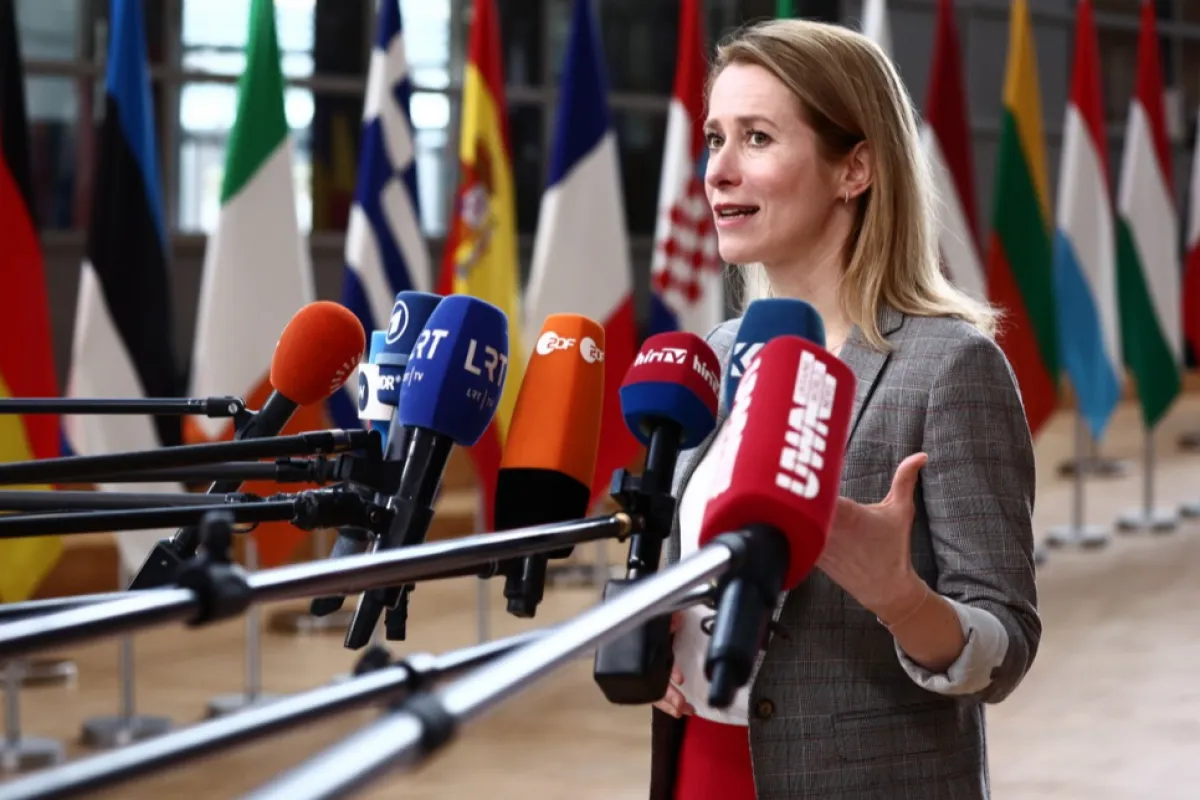
Estonia has pleaded tough sanctions against Russia, and yet Estonian entities and persons – even from the Prime minister’s family – have been breaking some of the existing sanctions.
Sanctions targeting Russia have impacted Estonian exporters and importers, but not all of them. How Tulips turn into cars
The sanctions imposed against Russia in connection with its attack on Ukraine also hit neighboring countries hard, and Estonia was not spared. If back in 2021 Russia was the second most important importer of Estonian goods after Finland, by August 2022 it had fallen back to seventh place in both imports and exports. Since we are talking about a small country, any restriction affects its economy quite quickly. For example, one of the consequences of the introduction of sanctions was the decline of the woodworking industry and construction, which used raw materials from Russia. Since the beginning of the war, the import of Russian timber to Estonia has almost completely stopped, which, along with other reasons, has led to a crisis in the industry.
In theory, fuel companies should also have suffered; fuel traditionally accounts for about 80% of Russian imports in value terms in Estonia. Last summer, Estonian fuel companies petitioned for an exception to be made for them so that they could import Russian oil products into the country even after the imposition of sanctions. Such an exception, of course, was not granted, but this does not mean that all business contacts with Russia were stopped.
Some companies even managed to significantly increase their turnover with Russia. This summer, the Eesti Ekspress reported on how products from the German car factories BMW and Volkswagen are supplied to Russians. The Estonian company ACF Export Import, which exported plants and flower bulbs to Russia before the war, tripled its turnover after the imposition of sanctions, but journalists discovered that the reason for this was not a sudden increase in demand for tulips – the records showed that the company facilitated cars and spare parts exports to Russia. The owner of the company, however, stated that the documents were forged.
Külli Kurvits, who is responsible for the field of customs compliance at the Tax and Customs Board, points out that given that Estonia is one of five EU countries with a land border with Russia, the country plays an important role in making sure that those sanctions are being implemented, and as a consequence there has been a significant increase in the workload of lawyers, other Board experts, as well as customs employees. Thanks to their efforts, recent attempts to smuggle motor oils, auto parts, and cash across the border have failed.
At the same time, it turned out to be impossible to completely block illegal trade. For example, a criminal case was opened against the company NT Bunkering for allegedly importing Russian oil while declaring that the product came from Kazahstan.
Kazahstan is generally named among those countries through which sanctions are mainly circumvented. Annual reports of companies eloquently indicate that as trade turnover with Russia was falling, the one with Kazahstan was increasing, and some companies even opened branches in that country. There is nothing illegal in the search for new markets, but only as long as those “new markets” are not merely just stops from which the goods are moved further.
“Companies must do everything necessary to prevent goods from reaching Russia. We cooperate internationally and exchange information with various institutions in neighboring countries. If there is a reasonable suspicion that the goods may not reach the destination country but are intended for Russia, we will prevent their export,” says Külli Kurvits, a representative of the Tax and Customs Board.
Circumventing sanctions through third countries: selling marine equipment to landlocked Tajikistan!
Since the practice of applying sanctions seemed unclear, entrepreneurs were forced to turn to lawyers. “At first, quite often they asked for clarification about what could be imported and exported or how to obtain special permits to extend contracts. Questions regarding the execution of some pending deliveries for different groups of goods were quite typical,” says Ksenia Kravchenko, a sworn lawyer at Law Office Lextal.
Now she expects an increase in the influx of clients who violated sanctions by circumventing them through third countries. “For example, a businessman brought some equipment for oil production on the continental shelf to Russia before the war started. After the introduction of sanctions, he conducted a market analysis and found a new buyer in Tajikistan. The businessman is young and quick and does not remember that in Tajikistan there is no sea and, accordingly, no continental shelf. Therefore, our prosecutor asks a completely reasonable question: why are you, dear businessman, not concerned about the fact that there is little reason to think that the Tajiks are purchasing equipment for themselves, and instead they intend to drive it at a speculative price to a place where it is not ordered to be sold? And if the prosecutor’s office manages to prove that the average businessman, even taking into account the C grade in geography, should have reasonably assumed that there is no sea in Tajikistan, the businessman faces a criminal penalty of up to five years in prison.”
Kravchenko points out that “the trade turnover of many states neighboring the Russian Federation miraculously increased precisely after the start of the war in Ukraine — and here, pecunia non olet” The EU threatened to impose sanctions on trade with the countries that are helping Russia and to place responsibility for violations on the entrepreneurs themselves.
Among those affected by the sanctions was the Estonian state railway company Operail, whose cargo transportation volumes had halved due to sanctions by the end of last year. After it became known last December that it was preparing to transport Russian nickel to Finland, this caused a scandal in Estonia. At that time, sanctions did not prohibit this, but this intention caused discontent among the Estonian political establishment.
Then-Foreign Minister Urmas Reinsalu said that although the transport of Russian nickel was legal, it was morally unacceptable. “We have made it clear that neither Operail nor any other state-owned company should conduct any business with Russia,” Prime Minister Kaja Kallas also said.
Some time later, the state-owned company announced that it was refusing all Russian cargo transportation and terminating contracts with 50 of its partners. Operail suffered significant losses and was forced to lay off half of its workers, while the moving of Russian goods through the region was largely taken over by the Latvian national railway company Latvijas Dzelzceļš.
Quod licet Jovi... When even the Prime Minister’s family breaks the sanctions
Tellingly, it was not only Latvians who demonstrated such pragmatism; perhaps the loudest scandal in recent months has been the business story of the husband of the Estonian Prime Minister, Arvo Hallik. At the end of August, national broadcast journalists discovered that Stark Logistics, a company in which Hallik owns a stake, continues to carry out transportation to Russia.
A company representative said that after the outbreak of war, they sharply reduced Russian transportation but continued to transport products from AS Metaprint, which had some unfulfilled Russian orders. The Prime Minister initially announced that she was not aware of her husband’s commercial activities, but journalists quickly discovered evidence to the contrary, at the same time finding out that Kaya Kallas issued a loan of 350,000 euros to her husband’s company.
“When a journalist asked me questions on this topic, I asked my husband, and he testified that they were transporting cargo for a client who was closing his factory there” , Kallas commented. However, her statement was also refuted, as the named factory, Metaprint, continues to operate, and its Estonian owner made no announcement regarding a date of the factory’s closure.
Among other things, it turned out that in the annual report of Stark Logistics, which was at the center of the scandal, supplies from Estonia to Russia were called supplies to the UK. Kallas's husband promised to sell all the shares and leave the company; however, remembering the prime minister's principled position regarding doing business with Russia, many in Estonia demanded her resignation, which, however, did not happen.
According to lawyer Ksenia Kravchenko, there are no legal procedures against the prime minister; the Internal Security Service did not find any violation of sanctions. “Another thing is that the prime minister’s political mandate is largely linked to her position as the leader of European opinion regarding maximizing pressure on Russia. A considerable number of voters gave her their vote in the last elections precisely because of this, and therefore, naturally, feel deceived,” she says.
Kravchenko also points out that in countries with a higher political culture, high-ranking politicians often leave their posts due to much less significant manifestations of hypocrisy, be it Boris Johnson and the COVID party or the Swedish Mona Sahlin, who paid with a state credit card for tights and a chocolate bar.
“Given the Prime Minister’s background, her repeated statements that she did not know about her husband’s business are particularly cynical. For a lawyer, however, it should not be a secret that Estonian laws operate with the concept of an affiliate. If, for example, some transaction is made between spouses or their companies with the aim of causing damage to creditors, it is assumed that the spouse, who allegedly had nothing to do with causing the damage, knew about the intentions of the second spouse,” says Kravchenko.
To prove the opposite, according to her, in such cases is very difficult, so it is not surprising that the average person, even without knowledge of judicial practice, does not believe in statements like “I would not be able to demand the cessation of Operail transportation if I knew what my husband was doing.”
The sanctions scandal has added to the troubles for the prime minister, whose party has lost the confidence of voters compared to the March elections. Against the backdrop of a worsening economic crisis, in which sanctions play an important role, it will be difficult for her to maintain authority, including among entrepreneurs traditionally loyal to the Reform Party. Even despite the support measures that the state promised to enterprises that stopped doing business with Russia. How much this is capable of reviving the Estonian economy in the current situation is, however, very doubtful.


